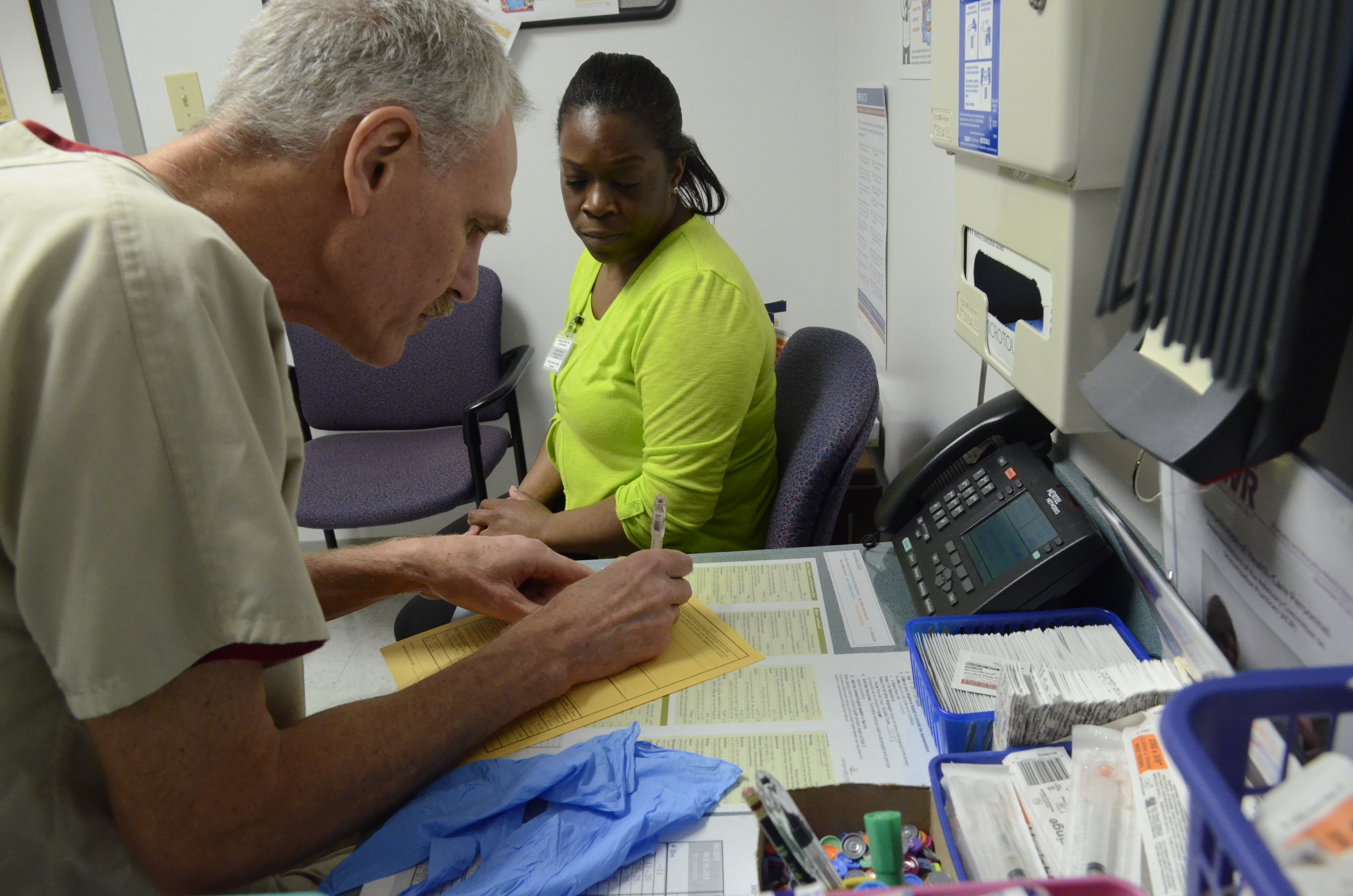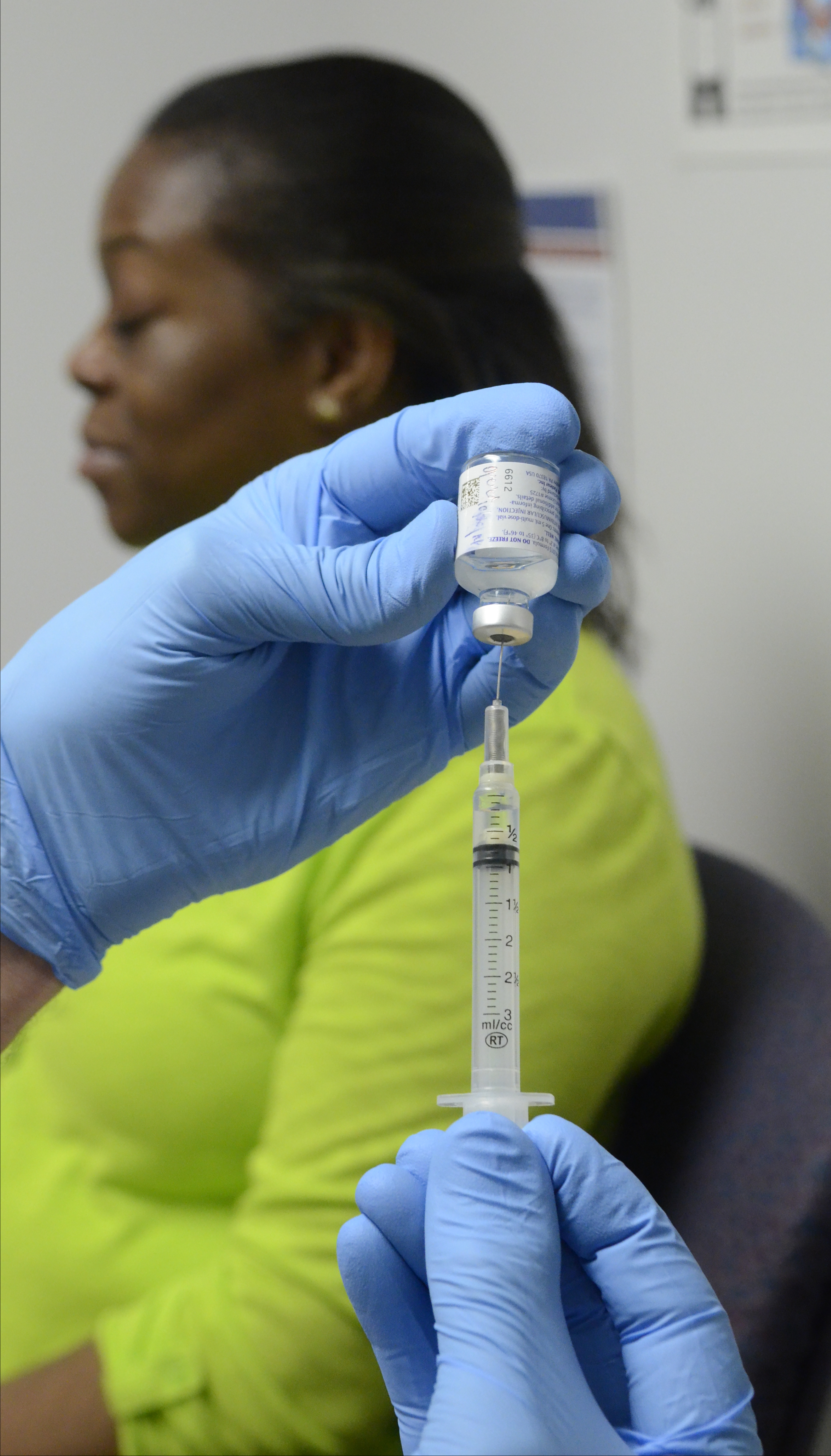Which vaccine is right for you?Several flu vaccine options are available for the 2014-2015 flu season:• Trivalent -- Traditional flu vaccines. Made to protect against the top three most prevalent flu strains: 2 influenza A viruses (an H1N1 and an H3N2), and an influenza B virus. This is good for anyone age 6 months and older.• Quadrivalent -- Introduced in 2013, this vaccine protects against the top four most prevalent strains of flu: two influenza A viruses and two influenza B viruses. It is also good for anyone 6 months and older. It may be more expensive.• High dose -- This vaccine is only for people 65 and older, as it has quadruple the amount of antigens. It is often recommended for seniors with weaker immune systems. High dose may be on backorder. If so, don't wait -- just get the regular vaccine, so it will be effective when flu season intensifies.• Nasal spray -- The CDC has recently begun recommending the nasal spray for children 2 years through 8 years of age, saying it is more effective for them. The spray is approved for anyone between age 2 and 49. But if nasal spray vaccine is not immediately available and the flu shot is, the CDC urges people not to delay getting vaccinated.• Recombinant -- A recombinant trivalent shot is egg-free, typically for people who have allergies.Sources: U.S. Centers for Disease Control and Prevention; Chattanooga-Hamilton County Health Department; North Georgia Health DistrictBY THE NUMBERS3,300-49,000 -- Range of flu-related deaths each flu season in the U.S. from 1976 to 2007200,000 -- Average number of Americans who are hospitalized from the flu each year43 percent -- Rate of Americans 6 months and older who got flu shots between 2010 and 2011Source: U.S. Centers for Disease Control and PreventionCOST OF SHOTSMost health insurance plans cover the complete cost of a flu shot. But if you're comparison shopping, here are the prices for flu shots at locations throughout the region. Many stores offer special deals or coupons, so check what is available before you go.Sam's Club* -- $14 for regular vaccine, $48 for high-doseCostco* -- $14.99 for regular vaccineTarget -- $24.99 for regular vaccine, $49.99 for high-doseKmart -- $24.99 for regular vaccine, $49.99 for high-doseWalmart -- $25 for regular vaccine, $48 for high-doseNorth Georgia Health District -- $25 for regular vaccine, $50 for high-dose. Federally funded vaccine is available at this location for people who need financial assistance.CVS -- $31.99 for regular vaccine, $51.99 for high-doseWalgreens -- $31.99 for regular vaccine, $54.99 for high-doseRite Aid -- $32 for regular vaccine, $61 for high-doseChattanooga-Hamilton County Health Department -- $35 for regular vaccine, $55 for high-dose. Federally funded vaccine is available at this location for people who need financial assistance.* Anyone can use Costco or Sam's Club pharmacies; no membership required.
FLU SYMPTOMSA 100-degree or higher fever, or feeling feverish (not everyone with the flu has a fever)A cough and/or sore throatA runny or stuffy noseHeadaches and/or body achesChillsFatigueNausea, vomiting and/or diarrhea (most common in children)Source: flu.gov
As Ebola fears continue to fester, health officials say the fixation on the disease is distracting Americans from a virus that poses a far greater threat:
"Flu represents a clear and present danger, and every year too many Tennesseans unnecessarily die from this common illness," warns Tennessee Health Commissioner John Dreyzehner.
"We need to put things in perspective. Every year the flu can result in the deaths of roughly 35,000 people. It can hospitalize a couple hundred thousand," adds Jennifer King, spokeswoman for the North Georgia Health District.
"Flu can kill you, too," says Connie Buecker, communicable disease program manager at the Chattanooga-Hamilton County Health Department.
While Ebola has a significantly higher mortality rate, the flu spreads with far greater ease.
By the end of January of this year, several thousand people had been hospitalized with a flu-related illness at Chattanooga-area hospitals, and at least 14 people had died.
Doctors say they are bracing for a much busier flu season this year as Ebola anxiety drives more people with flu-like symptoms to physicians and emergency rooms. A Harvard University poll conducted last week found that while only a handful of people -- four as of Friday -- have been diagnosed with Ebola in the United States, nearly 40 percent of Americans say they are concerned that someone in their family will contract the virus.
The Tennessee Department of Health warned that as more people visit the doctor with nausea and fever, health-care providers may ask more pointed questions about symptoms and travel history.
But those doctor's visits could often be avoided, Dreyzehner said, if more people would just get a flu shot.
Unlike Ebola, the flu can be combatted on the front end, health officials stress -- and often at little or no expense. Most insurance plans cover flu shots, and pharmacies and supermarkets offer competitive pricing for a variety of common vaccines.
In 2009, national anxiety centered on the H1N1 flu virus pandemic. The U.S. Centers for Disease Control and Prevention estimates that 43 million to 89 million people had H1N1 between April 2009 and April 2010. They estimate there were between 8,870 and 18,300 H1N1-related deaths.
Just five years later, the strain has become familiar, and seemingly less threatening, as H1N1 protection is now included in vaccines. Still, H1N1 last year accounted for an unusually high number of severe cases of flu among young adults -- a population that is not typically susceptible to flu, and whose members are less likely to get the flu shot.
People misunderstand the flu, said Dreyzehner.
"Some incorrectly regard flu as a really bad cold. It's not," he said. "It can and does kill many [people] every flu season."
Still, Buecker said she sees a resistance to getting flu vaccine, especially among young people. "They will get vaccinated against anything else -- yellow fever, Hepatitis A -- but when it comes to flu shots, they are far more hesitant."
A common misconception, said Buecker, is that the vaccine can actually cause illness. In reality, she said, the shot contains killed flu viruses that cannot spread illness.
The CDC has reported that a study in 2011-2012 "showed that flu vaccination was associated with a 71 percent reduction in flu-related hospitalizations among adults of all ages."
Meanwhile, the CDC just announced new flu recommendations for children ages 2 to 8, saying nasal spray like FluMist is more effective than an injection at staving off the virus in kids.
The vaccine is especially effective during the first six months, but the vaccine's efficacy typically lasts close to a year, health officials say. Flu season typically lasts from November to March, peaking locally in January and February.
Flu shot prices this year have risen between $2 and $3 at most locations. Clinic managers say it is because the cost of the vaccine has gone up. But King said if price is a factor, people should go where they can find the best deal -- even if it's not through the North Georgia Health District. The key is to just get vaccinated, she said.
"We cannot take our eye off the ball," said King. "Yes we need to be concerned, keep our awareness heightened on Ebola -- but the flu is something we can deal with right now."
Corrected at 4:15 p.m. to note that the flu vaccine is especially effective during the first six months.
Contact staff writer Kate Harrison Belz at kbelz@timesfreepress.com or 423-757-6673.


